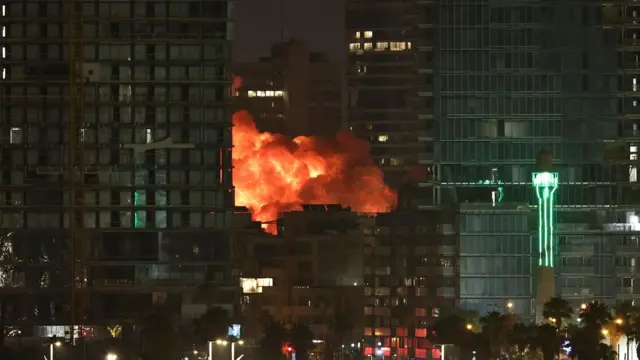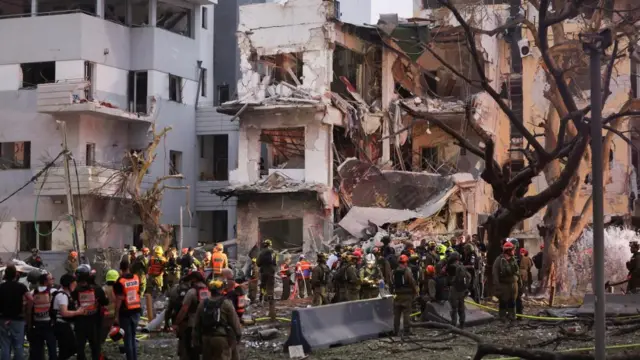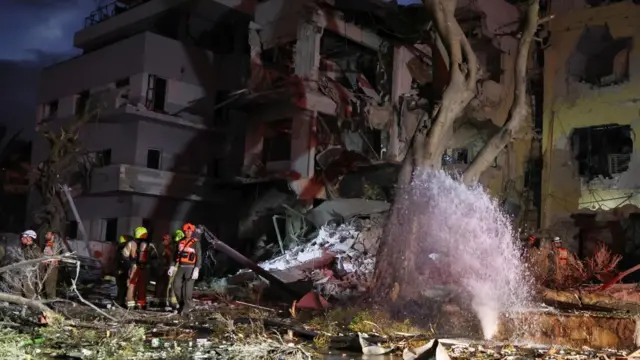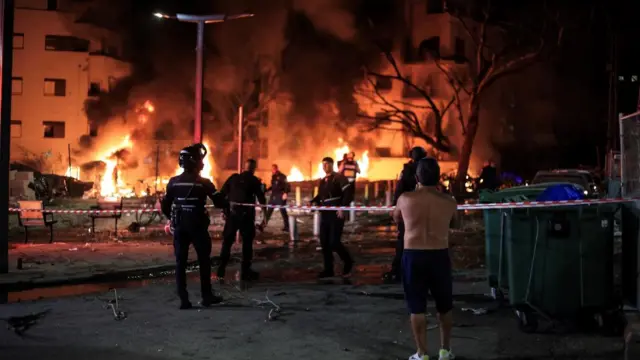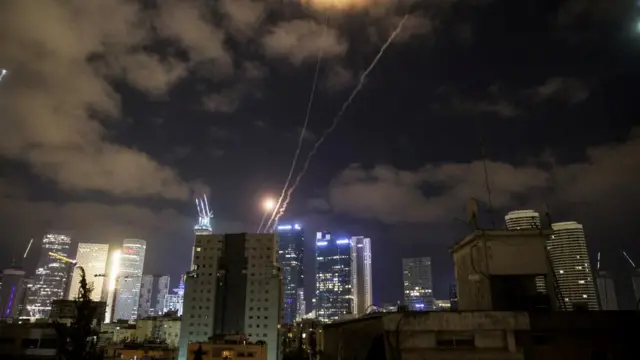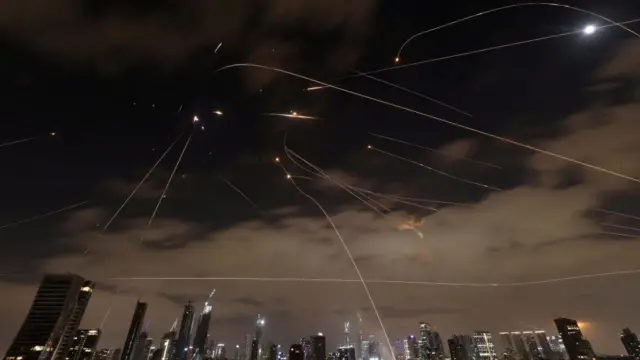Israeli death toll overnight rises to fivepublished at 06:37 BST 16 June
Another person has been killed in Iran's strikes across Israel according to Magen David Adom, Israel's national emergency service.
This brings the number of people killed in the overnight strikes on Israel to five.
We reported earlier that two women and two men in their 70s were also killed.
The emergency service says it has evacuated 92 injured people, including a 30-year-old woman in serious condition with facial injuries, six in moderate condition and 85 with mild injuries.
